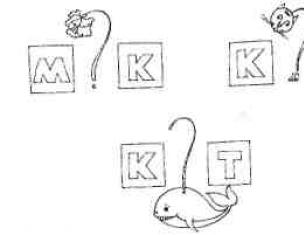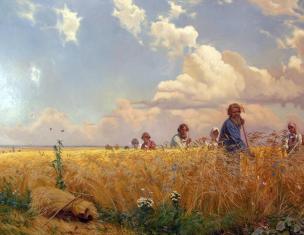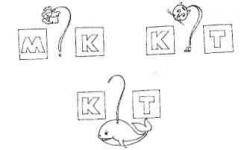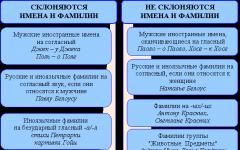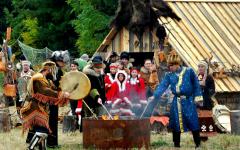The official language of Portugal is Portuguese. Today it is one of the main languages in the world, ranking sixth in terms of the number of native speakers (about 240 million). This is the language with the largest number speakers in South America, it is spoken by almost the entire population of Brazil. Also this official language in Angola, Mozambique, Cape Verde, Sao Tome and Principe, Guinea-Bissau, East Timor and Macau.
Portuguese is a Romance language. Despite the fact that it is very similar to Spanish, and the two languages have 90% in common (in vocabulary and grammar), it is still completely different languages. The Portuguese are proud people and do not like it when foreigners from non-Spanish speaking countries speak this language in Portugal.
Given that many words can be spelled almost identically, pronunciation varies significantly. This is because in Portuguese There are several nasal diphthongs that do not exist in other languages. Spanish is well understood, but it is not always the best language to use unless you are from a Spanish speaking country yourself.
It is also worth mentioning that pronunciation in Portugal is significantly different from Brazilian pronunciation. The differences mainly lie in pronunciation. There are several vocabulary differences, so sometimes Brazilians have difficulty understanding a European Portuguese accent.
But the Portuguese have no problem understanding the Brazilian dialect, because the pop culture of this country (soap operas and pop music, for example) is very popular in Portugal.
English is spoken in many tourist areas, but not everywhere. Portuguese often watch American films with original English dubbing and subtitles in Portuguese. Therefore, many speak English quite well, and also due to the fact that English is studied in schools.
Main tourist languages of Portugal
In the major tourist areas you will almost always find someone who speaks the major European languages. Hotel staff are required to speak English, even if only a little. French almost disappeared as a second language.
German- and Spanish-speaking people are rare. About 32% of Portuguese can speak and understand English language, while 24% understand and speak French. Although Spanish understand it well, only 9% of people can speak it fluently.
The westernmost country of the Old World, Portugal is loved by tourists for its special charm, excellent wines, amazing features for quality surfing and a varied beach holiday on both the mainland and the islands. Portuguese is officially adopted as the official language in Portugal. The country is a member of the international organization - the Commonwealth of Portuguese-speaking countries. It also includes the former colonies of Portugal - Brazil, Angola, Guinea-Bissau, Cape Verde, Mozambique, Sao Tome and Principe.
The Miranda language has also had official status in the country since 1999, and Galician is very widely spoken in the north.
Some statistics and facts
- Portuguese speakers are called Lusophones, named after the Roman province of Lusitania. It corresponded to the territory of modern Portugal and by analogy with this, the totality of Portuguese-speaking territories on the planet is called Lusophonia.
- The official language of Portugal is one of the most widely spoken in the world and the second most spoken Romance language after Spanish. In total, about 200 million people speak it.
- About 80% of all speakers live in Brazil, a former Portuguese colony in South America.
- European Portuguese differs from Brazilian Portuguese at the level of phonetics and vocabulary. Their grammar is almost identical.
History and modernity
In ancient times, the Iberian Peninsula was inhabited by Iberians, Lusitanians and Ligurians, and their languages left their mark on the modern toponymy of Portuguese. The Romans brought with them Latin, from which all the Romance languages originated, and the Visigoths and Moors who replaced them brought their influence to the formation vocabulary.
The first dated document in Portuguese was the will of King Afonso II, and the heyday of Portuguese literature came at the end of the 12th century, when Provençal troubadours appeared, composing lyrical songs and poems.
IN fiction The official language of Portugal is often described as "sweet, wild and beautiful".
Note to tourists
Despite the fact that Portugal is located on the "outskirts of Europe", English, French and other foreign languages its population owns it quite widely. In tourist places, in hotels and restaurants in the capital and others major cities English-speaking and Spanish-speaking staff work, and menus, maps, work schemes public transport translated into English.
IN travel companies in the cities of Portugal you can always book excursions with an English-speaking guide.
The Portuguese language originated back in 218 BC. with the arrival of the Romans on the Iberian Peninsula. Today it is the official language of nine countries. It is the fifth most common in the world and the most popular in the southern hemisphere of the planet.
1. Portuguese has a lot in common with, but does not come from it, as many people mistakenly believe. The main reason for the similarities between these languages is that the bulk of the vocabulary of each is of Romance origin.
2. The Spaniards practically do not understand oral speech residents of Portugal, but at the same time read texts written in Portuguese without unnecessary difficulties.
3. The formation of the Portuguese language was greatly influenced by the languages of those peoples with whom Portuguese sailors and traders came into contact. That is why it contains many other languages - Arabic, and not only.
4. Portuguese alphabet includes 26 letters, including letters with diacritics. It is noteworthy that letters such as K, V and Y are not typical of the traditional Portuguese language, and therefore they are used only in words of foreign origin.

5. Every year, on May 5th, Portuguese Language Day is celebrated. This holiday exists in all countries where this language is spoken.
6. There are two varieties of the Portuguese language - Portuguese proper and Brazilian. They differ in lexical, phonetic composition and even spelling. So, in Portugal, spelling remained unchanged for centuries, but in Brazil it transformed over time, adapting to the actual pronunciation of native speakers. In 2008, by decision of the Portuguese Parliament, certain changes were made to the Portuguese spelling in order to bring it as close as possible to the standards of the Brazilian one.
7. In Brazil there is a Museum of the Portuguese Language. It is located in the city of Sao Paulo. A special feature of this museum is the use of interactive panels that allow you to get useful information about the development of language.

8. All those people who speak Portuguese are called Lusophones. Accordingly, the territories in which this language is widespread are united under the name Lusophonia. This word comes from the Latin Lusitania (Louisitania) - this was the name of the ancient Roman province located on the territory of modern Portugal.
9. Portuguese has many dialects. The oldest among them is Galician. It is spoken by about 4 million people living in the northwestern part of the Iberian Peninsula. By the way, it is believed that it was in Galicia that the Portuguese language and culture originated.
10. Residents of the municipality of Miranda do Douro (located in northeastern Portugal) speak a unique Miranda language or Mirandes (lhéngua mirandesa). It is one of the varieties of archaic Portuguese, which in vocabulary and phonetics is as close as possible to Spanish. Today, the number of native speakers of this language is only a couple of thousand people. However, since 1999, Mirandes has had official status. Moreover, a local newspaper is even published on it.

11. In Portuguese there are many words that resemble Russian words in their spelling, but have a completely different meaning. These include elétrico - tram, autocarro - bus and many others.
It is no exaggeration to say that Portuguese is one of the most beautiful and diverse languages in Europe. No wonder the Brazilian poet Olavu Bilak called it “beautiful and wild.” And the world-famous Spanish writer Miguel de Cervantes gave it an even more interesting definition - “sweet tongue.” And in some ways these great people were undoubtedly right.
From the farthest corner of the Iberian Peninsula, Portuguese spread far and wide with the help of the ships of this maritime empire. On the way to Far East Portuguese naves (ships) established trading posts and forts on the shores of Africa, in India (Goa), China (Macau) and strategically important sea routes(Cape Verde, East Timor). Since 90% of the sailors died on each voyage, there was not much relocation of residents. In its immediate neighbourhood, Portugal settled in the Azores and Madeira, these territories have their own dialects, and the islands were an important bridge for further expansion. However, the real revolution in the Portuguese conquests was Brazil. It became a melting pot in which the genes of Indians, Portuguese and, thanks to the ruthless slave trade, Africans were mixed. In this process, the Portuguese language, European diseases, and the bandeirate captains who hunted the Indians destroyed thousands of Indian languages, meeting only one serious rival - the language based on the languages of the Indians Lingua Geral, which was widely used in the Amazon basin. Today, the majority of Portuguese speakers are Brazilians, and where printing presses were once banned by royal decree, telenovela soap operas have now reversed the flow of cultural exchange between Portugal and its former colony.
Portuguese is one of the most widely spoken languages in the world. It belongs to the Romance group of languages. Written Portuguese is based on the Latin alphabet. People who speak Portuguese are called Lusophones. After all, the Portuguese territories were previously called Lusitania. This term has quite an old history, like the language of the Portuguese itself.
History of the Portuguese language
In ancient times, the Iberian Peninsula was inhabited by peoples whose history is practically unknown. Researchers believe that these tribes had African roots.
The north of Portugal was once inhabited by Lusitanians, Ligurians and Iberians. The Ligurian language was the basis from which Portuguese was then born.
In the 13th century BC, the northern tribes were conquered and absorbed by the Celts. Therefore modern language There are also Celtic roots in Portugal.
Around 218 BC, the Romans captured the peninsula. They brought with them Latin, which was actively spread in the south. The northerners lived in greater isolation and managed to preserve their habits and customs.
During our era, 711 also became a difficult period for Portugal. The Iberian Peninsula was captured by the Arabs. The population was forced to learn Arabic. This is how the notorious Arabisms found their way into the language of the indigenous peoples of this state.
In the 9th century, the Romanesque dialect was almost completely formed in these lands. This process gave birth to the Old Portuguese language. Thus, in 1536, the first Portuguese charter, written by Fernan de Oliveiro, was born.
4 years after the publication of the grammar, another significant book appeared - “Dialogues about Language”. Its author was João de Barrosha. After this, the Romanesque dialect was transformed into the official language of the state.
Modernity of the Portuguese language
Today, Portuguese is rapidly approaching its Brazilian norm. Because there are differences between the same language in Portugal and Brazil.
Luis de Camoes did a lot to ensure that the grammar and spelling of Portuguese had uniform rules and norms. In his works he used ancient literature and Italian works of the Renaissance.
Features of the language
The contrast between open and closed phonemes is a feature of New Portuguese. Cervantes also called this language group “sweet language”, for its melody and melodiousness.
About 150 million people today speak Portuguese. Many of them use specific dialects. The absence of the intervocalic "l" sound distinguishes this language from all other Romance languages.
The first written monument of Portuguese dates back to 1189. It is a poem dedicated to Maria Paes Ribeiro, who was the lover of Sancho the First. The author of this work is Payo Soares de Taveiros.
Portuguese has many loanwords from Spanish, Arabic and Latin languages. There are words and expressions from Asian language group. This diversity is explained simply: the Portuguese have always traveled a lot, maintained trade relations with other peoples, and their territories were repeatedly conquered.
Portugal is a country that has absorbed best sides different cultures. A variety of tribes and peoples lived under its scorching sun in every era. All of them had a hand in the formation of the modern Portuguese language. This is probably why Portuguese is not only one of the most widespread, but also one of the most beautiful languages in the world. It is also a popular and frequently chosen language to learn.


